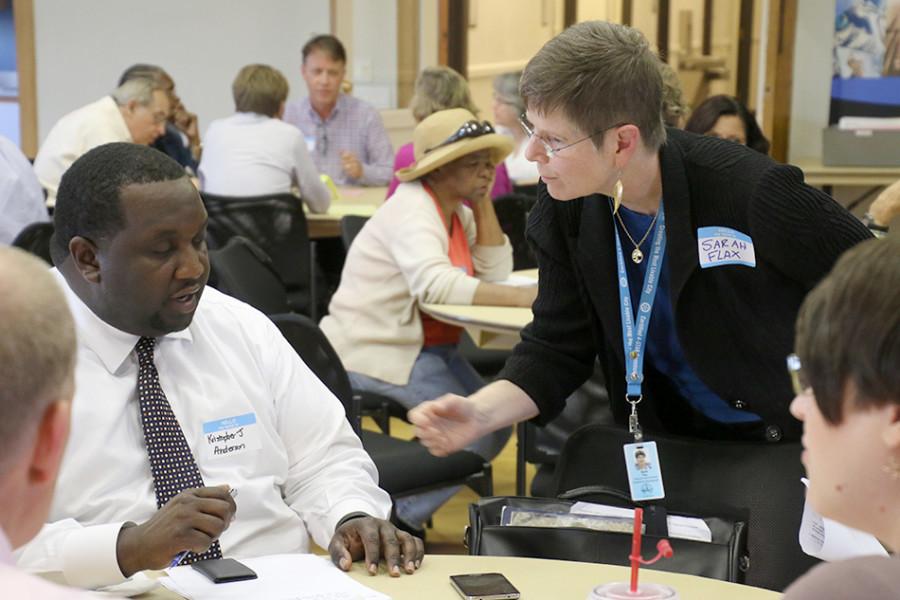City plans for more delays to next year’s federal housing development funding
Daily file photo by Drew Gerber
Sarah Flax, Evanston’s housing and grants administrator, works with the community housing issues. Flax helped construct a plan for the allocation of next year’s federal funds to housing and other urban improvements.
November 18, 2015
A city committee voted Tuesday to recommend a plan to allocate federal funding for housing and other urban improvements to City Council, despite concerns for a recurrence of delays in delivery of the funds.
The Housing and Community Development Act Committee passed to council next year’s allocation of money aimed at improving living situations for low- and middle-income Evanston residents. The plan uses federal funding from the United States Department of Housing and Urban Development to provide decent housing, a suitable living environment and expanded economic opportunities for residents in need.
The proposed 2016 plan includes funding for a new facility to provide services to low-income teens and infrastructure projects such as improved sidewalks and street lighting in low- and moderate-income neighborhoods.
Sarah Flax, Evanston’s housing and grants administrator, said the committee doesn’t know when it will receive the federal funds this year considering 2015’s funds didn’t arrive until June.
The funding delay could impact the work of Interfaith Action, an Evanston charity that provides warming centers and emergency overnight shelters to the city’s homeless during the winter months. The group, which is a coalition of several faith-based charities, is hoping to expand their overnight shelters this winter.
“We are trying to work with them so they can still take care of the need in the cold weather,” Flax told The Daily.
Before the city receives funds for 2016 from the federal government, city officials will continue to find alternative sources of money for projects such as Interfaith Action’s winter shelters until they received the reimbursement from HUD, Flax said.
“We will work with the interfaith committee — we will see what their situation is,” she said.
Although the plan is funded with federal dollars, the lack of an Illinois budget has impacted the social services organizations with which it works. Some of the nonprofits funded by the plan notified the city of increased funding need for next year as a result of missing checks due to the Illinois state budget impasse.
“Virtually everybody we fund is also funded by the state,” Flax said. “The impact on those agencies is tremendous.”
However, despite the potential state funding losses for the city itself, the action plan allocates the same amount of funding for its social services as last year.
Several other projects have been considered under the plan, such as sustaining a service that provides loans for homeowners and renters to fund essential home improvements, funding for graffiti removal, summer youth employment programs and home meal delivery services.
The plan allocates the majority of funding to improving public facilities, funding code enforcements and public services.
Nora Holden-Corbett, a grants and compliance specialist with the city, said the two biggest public facility improvement projects in 2016 are a street resurfacing project and lighting renovations to the athletic fields at Foster Park in central Evanston. Of the $500,000 from the action plan allocated toward public facility improvements, these two projects account for more than half of those funds.
Housing funding will mostly be spent on providing interest-free or deferred loans for essential home improvements. Flax said that although most of the program’s loan recipients are homeowners, it is available for renters as well.
“Our goal is to help make needed repairs — if they have code violations we want them to take care of those,” she said. “We can help somebody improve his or her property, both for their own well-being and for the community sustainability.”
Email: [email protected]
Twitter: @noracshelly


